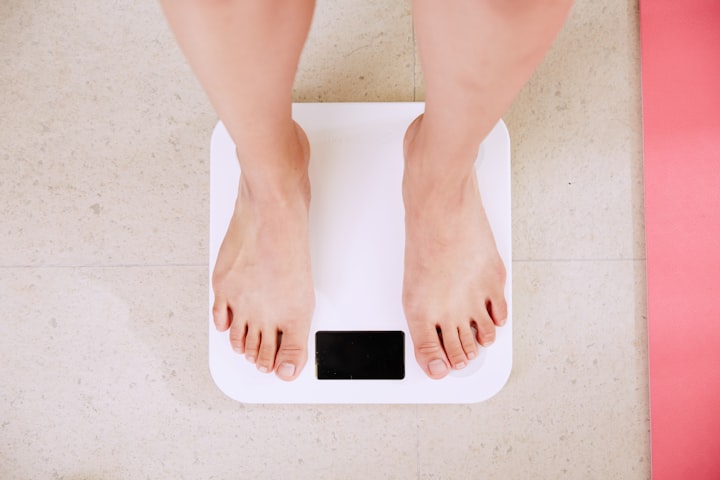
Why
Polycystic ovary syndrome (PCOS) may be an invisible condition that you cannot always see, but it can have devastating effects on your health if left untreated. The good news, however, is that PCOS does not have to damage your health. By taking charge of your PCOS with the right diet and lifestyle changes, you can significantly improve both your physical and mental health and quality of life! Here are five ways in which PCOS can damage your health if left untreated, along with the steps you can take to help protect yourself from these harmful effects.
What Is Polycystic Ovary Syndrome (PCOS)?
Polycystic ovary syndrome (PCOS) is a condition that affects women and girls of reproductive age. It is a very common hormonal disorder with no known cure. What happens in PCOS: To explain what happens in polycystic ovary syndrome, we first need to understand how our bodies produce hormones, like estrogen, progesterone and testosterone. The adrenal glands secrete most of these essential hormones, but there are also two other tiny glands called the gonads — testes in men and ovaries in women. These organs secrete their own kind of hormone — sperm cells or eggs respectively — during puberty when they become active. However, they also have a role outside of making gametes (sperm or eggs), producing other sex-related hormones.
Symptoms of PCOS
All women with polycystic ovary syndrome (PCOS) will have a combination of two or more of these symptoms. Most common symptoms include: amenorrhea, acne, male-pattern baldness and infertility. Less common symptoms include high blood pressure, hypertension, sleep apnea and cushing’s syndrome. Keep in mind that there are different degrees of PCOS as well; some women only have one symptom while others might have several. Furthermore, certain symptoms can worsen throughout life due to long-term complications associated with polycystic ovary syndrome.
All women with polycystic ovary syndrome (PCOS) will have a combination of two or more of these symptoms.
Causes of PCOS
There are several factors that may cause or contribute to Polycystic Ovary Syndrome, including genetics and obesity. If you’re overweight and have acne or thick facial hair, you may be at risk for Polycystic Ovary Syndrome. Also, insulin resistance is a common contributor to Polycystic Ovary Syndrome. Your body produces insulin in order to process blood sugar and store energy. However, if you frequently consume too much food or don’t exercise often enough, your cells become resistant to insulin. Over time, those high levels of insulin can lead to diabetes—which increases your chances of developing Polycystic Ovary Syndrome.
Natural Treatment
For anyone who has been diagnosed with polycystic ovary syndrome (PCOS), there is probably a lot of information to take in, but it can be hard to sift through all of it and know what matters. Thankfully, some common symptoms and health risks associated with polycystic ovary syndrome can be treated naturally by diet, herbs and supplements. Here are six conditions that may improve when you begin a natural treatment for PCOS:
Working out on an empty stomach won’t help you burn fat and will only result in harming your body; burning fat requires adequate levels of hormones that come from eating—so don’t skip meals!
While having one or two servings of fruit daily isn’t detrimental to losing weight, avoiding fruit will have an effect on insulin resistance because fruits contain fiber that can lower blood sugar.
Conventional Treatment
Conventional medical treatment for polycystic ovary syndrome is designed to either suppress ovulation or increase fertility. For instance, a woman with polycystic ovary syndrome may be prescribed oral contraceptives to prevent ovulation from occurring. Although these medications will prevent you from conceiving, they can also have dangerous side effects such as high blood pressure and stroke. As for increasing fertility in women with polycystic ovary syndrome, there are several drugs that are used for inducing ovulation and/or pregnancy.
Tips for Eating Well When Living with PCOS
A well-balanced diet is crucial for healthy living, but it can be even more important for those with certain conditions, such as polycystic ovary syndrome (PCOS). Here are some tips to follow when trying to eat well and manage your condition at the same time. #1: Eat a Variety of Foods Although it may seem like eating a variety of foods would only make you hungrier, research suggests that doing so will help stabilize blood sugar levels. When your body has consistent access to glucose from food, hormonal changes that typically accompany an influx of glucose aren’t triggered. But what makes up a good meal plan if you have PCOS? Your meals should consist primarily of carbohydrates and protein—but which kinds you choose matter!






Comments
There are no comments for this story
Be the first to respond and start the conversation.